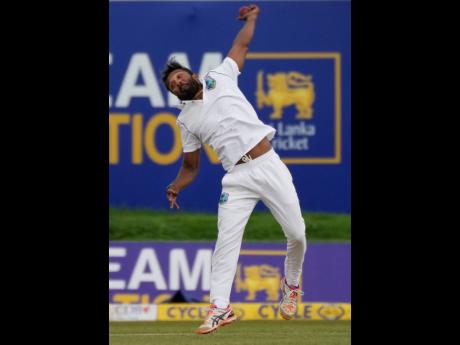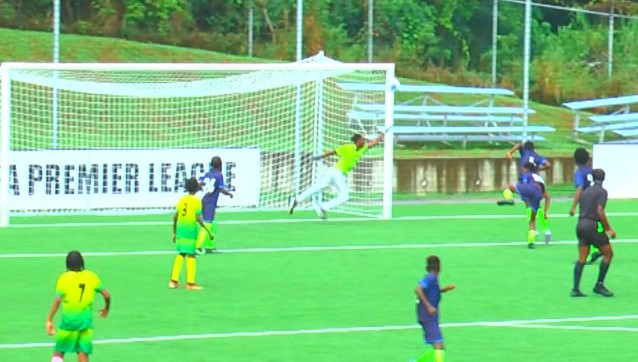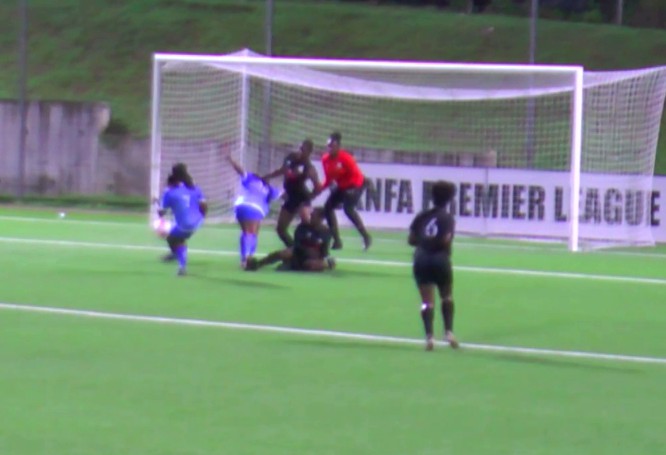Permaul and Anderson Contest Ball-Tampering Allegations in High Court
The Guyana Harpy Eagles cricketers, Veerasammy Permaul and Kevlon Anderson, have initiated legal proceedings in the Guyana High Court to challenge ball-tampering charges brought against them during the West Indies Championship. The players, represented by attorney Arudranauth Gossai, aim to clear their names after being found in breach of Cricket West Indies’ (CWI) Code of Conduct during a match against Trinidad and Tobago Red Force. While both players initially pleaded guilty and accepted fines – 90% of match fee for Anderson and 75% for Permaul – they now allege they were coerced into this plea by match referee Michael Ragoonath. They claim they were presented with an ultimatum: plead guilty and accept a fine or face a hearing, a 100% match fee fine, and a ban. This perceived lack of due process and fair hearing has prompted their legal action.
The Guyana Cricket Board (GCB) has publicly backed Permaul and Anderson, condemning the actions of the umpires and match referee as unacceptable. The GCB asserts that the players felt compelled to plead guilty despite their initial denials, with Permaul consistently maintaining his innocence. Furthermore, the GCB highlights that Anderson was not even granted a hearing. The board criticizes the match officials’ conduct as unprofessional, unethical, and a significant breach of procedural fairness, expressing profound disappointment in the handling of the situation, particularly in a premier domestic tournament. The GCB’s statement underscores the expectation of higher governance standards and the importance of transparency and accountability in the sport.
The crux of the GCB’s argument revolves around the alleged denial of due process to the players. They contend that Permaul and Anderson were effectively forced into admitting guilt to avoid harsher penalties, regardless of their actual culpability. This, according to the GCB, undermines the principles of justice and fair play that are fundamental to any sporting competition. The board’s statement emphasizes that the players felt they had no viable alternative but to accept the charges, fearing the consequences of a contested hearing. This perceived pressure, the GCB argues, invalidates the guilty pleas and calls into question the integrity of the disciplinary process.
The GCB’s strong support for the players underscores their commitment to upholding the rights of their cricketers. By backing Permaul and Anderson’s legal challenge, the GCB aims to ensure that such incidents are not repeated in the future. They are advocating for greater transparency and accountability within CWI’s disciplinary procedures, aiming to safeguard the integrity of the sport and protect players from undue pressure. The board views this case as a crucial test for ensuring fair play and just processes within West Indies cricket, thereby setting a precedent for future disciplinary actions.
The legal challenge brought by Permaul and Anderson, with the full backing of the GCB, has broader implications for cricket governance in the West Indies. It raises questions about the power dynamics between players, officials, and governing bodies. The case highlights the potential vulnerability of players to pressure from authorities and the importance of independent processes to ensure fairness. The outcome of this legal battle could significantly impact how disciplinary matters are handled in future tournaments, potentially leading to reforms that strengthen player protections and enhance the overall transparency of the process.
The GCB emphasizes that these allegations have overshadowed what should have been a celebration of West Indies cricket at its highest domestic level. The controversy surrounding the ball-tampering charges and the subsequent legal challenge has undoubtedly cast a shadow over the tournament. The GCB’s statement reflects a broader concern about the potential damage to the reputation of West Indies cricket. By pursuing this legal avenue, Permaul, Anderson, and the GCB aim not only to clear the players’ names but also to restore confidence in the fairness and integrity of the sport within the region. The outcome of this case will be closely watched by cricket fans and administrators alike, as it holds significant implications for the future of West Indies cricket.
Share this content:












Post Comment